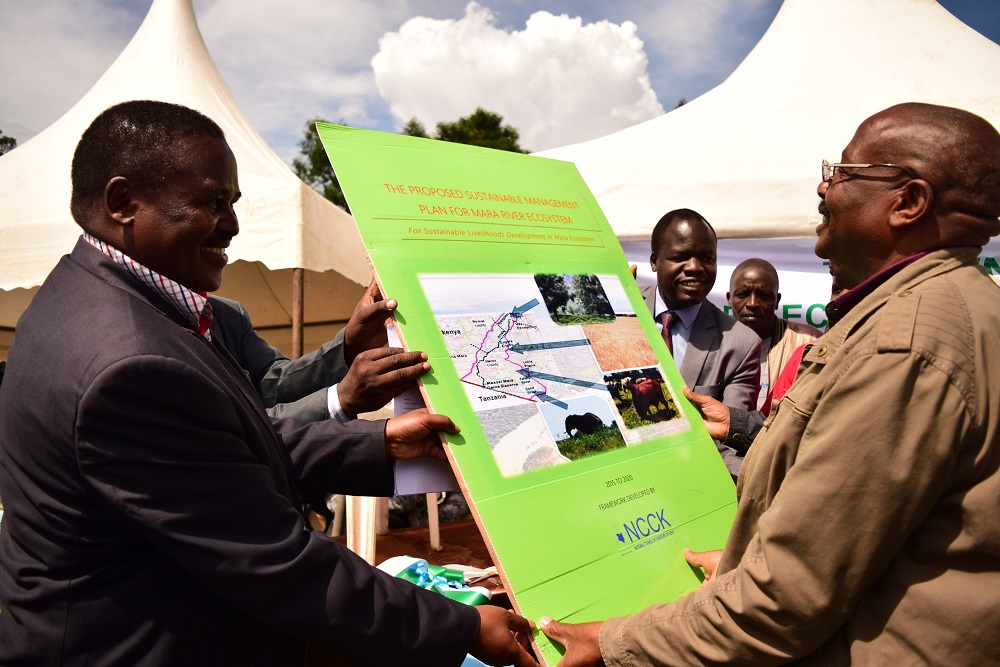Are Kenyans serious about National Unity?
 At their best, Kenyans have a deep desire for national cohesion and integration. This desire is voiced mainly as a need for “peace”, “co-existence”, “cohesion”, and “reconciliation”. Peace building is a clarion call for many leaders in Kenya – even those who are suspected of fanning ethnic animosity.
At their best, Kenyans have a deep desire for national cohesion and integration. This desire is voiced mainly as a need for “peace”, “co-existence”, “cohesion”, and “reconciliation”. Peace building is a clarion call for many leaders in Kenya – even those who are suspected of fanning ethnic animosity.
The preamble of the 2010 Constitution envisions a more peaceful society where all Kenyans cherish their ethnic, cultural and religious diversity. It declares that we as Kenyans are “proud of our ethnic, cultural and religious diversity, and determined to live in peace and unity as one indivisible sovereign nation”.
Article 10 of the same Constitution, further articulates the national values and principles espoused by Kenyans. These including national unity, human dignity, equity, inclusiveness are underscored as national values.
The question however remains that, in a culturally plural country such as Kenya, where many citizens have a very uncertain sense of national identity and community, ‘Are the people committed towards national cohesion and integration?’. Some see cultural plurality as a major factor to conflict. Indeed, those that have attempted to promote national cohesion have realized that, peace is not an event, but a life long process with as many facets as are the players.
Generally, members of ethnic communities in divided societies typically do not see each other as interdependent parts of a single national entity. The opposite is true in such divided societies. Members of each ethnic or religious group often perceive members of the other communities as “outsiders”, “madoadoa” or in the extreme, as dehumanized and threatening hostile opponents. When one introduces democracy to such a country, the result is anarchy and chaos. The challenge of democracy and cohesion lies not in the absence of democratic values, but rather, in the fact that members of many multi- ethnic countries such as kenya, do not see themselves as part of the same national community.
When the government sought to rally Kenyans behind the “Najivunia Kuwa Mkenya” slogan, some felt the opposite was true. “Navumilia kuwa Mkenya” became the clarion call expressing how deep we have sunk as a country.
One can therefore conclude that Kenya is a country, still struggling to come to terms with itself. Some ethnic communities have even dared secceding from Kenya as the panacea of their problems. Others see nationality as competing with, rather than complementing, other forms of cultural identity in Kenya. The identity crisis is thus a major issue to be tackled, not by law alone but also by other social engineering tools like religion and language.
Although democracy is a significant element in nation building, Kenya needs more of the software elements to become a cohesive and democratic nation.Kenya needs more inclusive social, political and economic processes.
It is paramount that citizens are guided by an effective leadership to perceive each other across the main cleavages as cooperators rather than mere competitors. Democratic competition must be tampered with cooperation.
Ways must be found to manage different facets of identity that kenyans hold dear in such a way that affirms diversity and at the same time, refraining from profiling difference in ways that penalise those who do not belong to certain communties.
Efforts must be scaled up to encourage members of different ethnic and religious communities to see themselves as part of the same national fabric with one common destiny.
Kenyans have been culturally conditioned to the perception that ethnic identity matters in order to access opportunities. Consequently, many citizens practice negative ethnicity as their primary identity, rather than their nationality. For instance, those in authority tend to appoint to key public service positions those ethnic chiefs and patrons who command the political allegiance of their communities and can “deliver” their votes when it comes to general elections.
During electoral campaigns, politicians appeal to two audiences: the voters and political party. To the voter, politicians appeal, not in terms of the policies or issues they stand for, but the grievances of the communities whose votes they seek.
To the political party, they demonstrate their capacity to deliver the votes their particular ethnic community or alliance of ethnic communities. Any efforts at publishing documents like manifestos are mere shows in the electoral process. Once in office, it is payback time; loyal supporters are rewarded with plum jobs and tenders. The challenge we face is not unique. Other countries have bridged deeper chasms between the people. So with effort, Kenya can become the land of opportunity for all. There is hard work ahead, not by the state alone, but by every individual Kenyan too.
Our top leaders in the Executive, Legislature and Judiciary must realize what more advanced countries realized long time ago, that the secret of economic stability is in stabilizing the currency by limiting the differences in incomes between the highest paid and the lowest, and keeping the salaries fixed, except for allowable annual increments and bonuses. In this way the cost of housing, food and transport and other services remains more or less fixed over the years, thus cushioning the lowest paid, without disadvantaging the better paid. This would in turn promote national cohesion by reducing the dependency syndrome on ethnicity as an identity based access to jobs and privileges, because every citizen would value their immediate neighbor with minimized discrimination.



